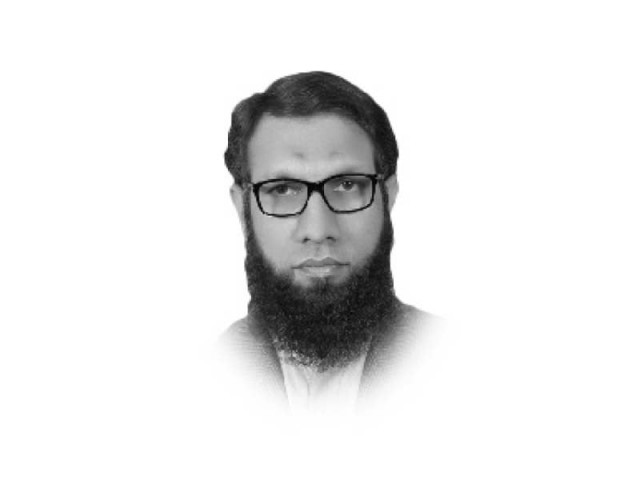Religiosity without religion
This way of thinking produces a wider culture of evasion

One of the most unsettling paradoxes in Pakistani society today is the gap between outward religiosity and inner moral emptiness. Many individuals who publicly display piety - through ritual practices, religious attire or familiar rhetoric - seem curiously untouched by the ethical and transformative demands of the very faith they claim to uphold. Their religiosity is loud and visible, but their relationship with religion - as a vehicle for self-reform, moral struggle and justice - is often hollow. It is a religiosity stripped of its moral soul.
This disconnect is most apparent in how many religious individuals rationalise unethical behaviour or excuse injustice by invoking theological explanations. If you question why some people suffer under corrupt systems while others thrive despite wrongdoing, you are told it is all predestined. If you suggest that a social collapse is a natural consequence of moral failure, you are met with the claim that God is merely testing the virtuous. In this way, difficult questions are not confronted - they are deflected. Instead of leading to self-examination, faith becomes a shield against accountability.
Such rationalisations may appear pious, but they are more often a form of moral escapism. They allow people to maintain a self-image of righteousness while continuing harmful behaviour or ignoring systemic injustice. This is not deep faith - it is a theology of convenience. God is invoked not to inspire transformation but to excuse the status quo. Religion becomes performance, not moral struggle. And in this performance, the soul of religion is quietly sacrificed.
Over time, this way of thinking produces a wider culture of evasion. In many communities, injustice is no longer seen as a human failure to be addressed but as a divine mystery to be endured. Privilege is explained away as God's favour, while suffering becomes a sanctified condition. Those who challenge these interpretations - who dare to call for introspection or reform - are dismissed as secularists or troublemakers. In this climate, religion does not challenge power - it blesses it.
This is a dangerous distortion of Islamic teaching. Core concepts like qadr (divine decree), ibtil?? (trial) and ?abr (patience) are routinely misused to suppress self-responsibility. But the Qur'an does not endorse fatalism. It repeatedly asserts that human beings are morally accountable for their choices, and that societies rise or fall based on their collective actions. Patience is not passivity. Trials are not excuses. And divine will is not a cover for injustice. When properly understood, these concepts are meant to cultivate resilience, humility and moral clarity - not apathy or submission to wrongdoing.
The Qur'an warns consistently against hollow religious practice. It condemns those who pray but ignore the rights of the orphan, who fast but cheat in trade, who speak of piety while acting with cruelty. Prophet Muhammad (peace be upon him) was not sent to make ritualists out of people - he was sent to awaken their conscience. His mission was to guide people not only to worship but to live ethically, to challenge oppression and to embody truth even when it was inconvenient or dangerous.
Yet in contemporary Pakistan, religiosity has often been reduced to a performance of loyalty to tradition. It is easier to repeat inherited formulas than to reflect on their meaning. Easier to obey the mulla than to wrestle with the ethical depth of divine revelation. Easier to follow the crowd than to confront one's ego. And always easier to blame external forces - God, fate, the West - than to accept personal or societal fault.
This is not the religiosity of the Prophet (PBUH) or the Qur'an. This is religiosity without religion - a hollow shell that provides identity but not direction, comfort but not conscience. It offers a public image of piety while neglecting the private task of self-reform.
Pakistan cannot move forward - spiritually, socially or politically - until this gap is bridged. Those who speak in the name of religion must begin with themselves. They must recover the prophetic model: truthfulness, self-examination and moral courage. For in the end, religion without justice is merely ritual. And piety without humility is little more than pride dressed in sacred language.
















COMMENTS (3)
Comments are moderated and generally will be posted if they are on-topic and not abusive.
For more information, please see our Comments FAQ